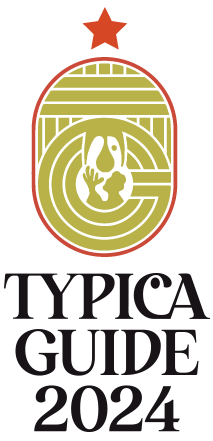
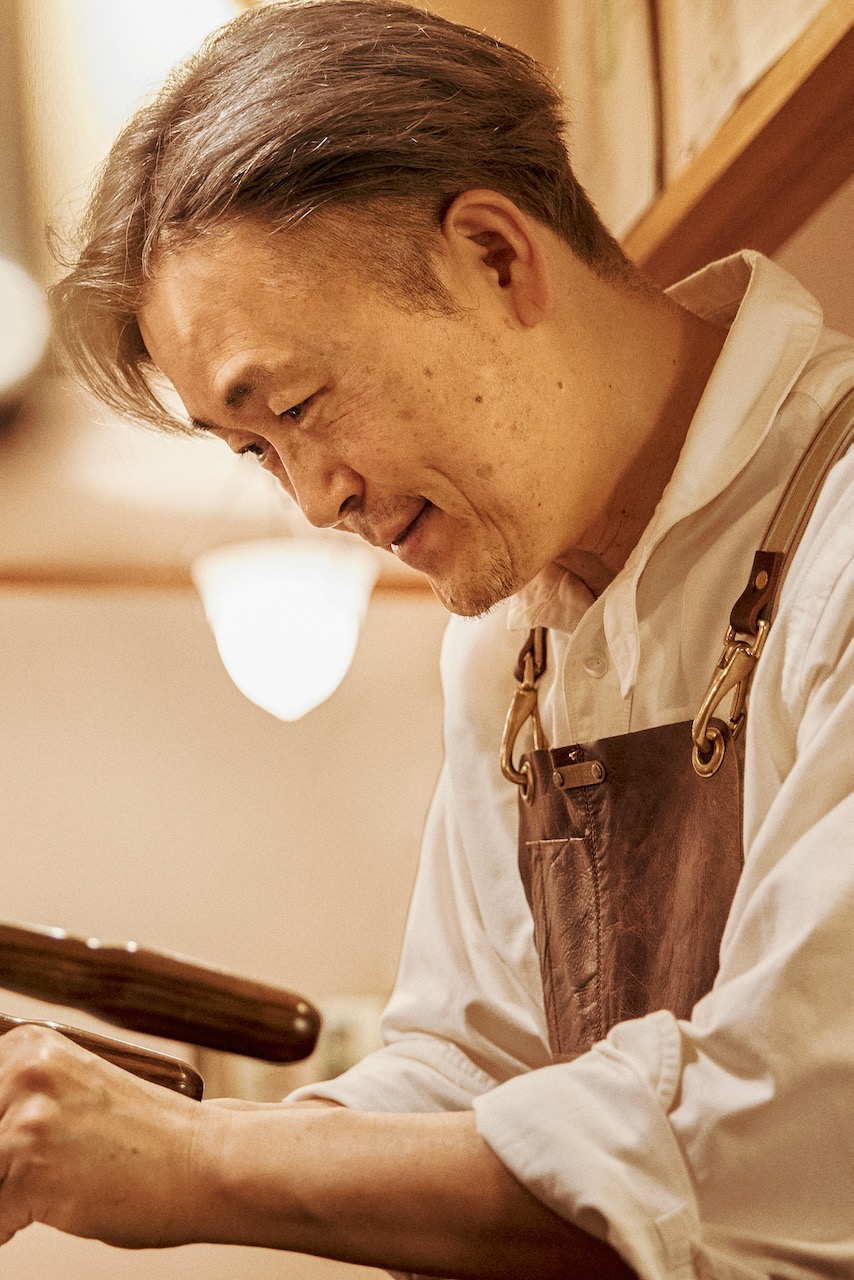
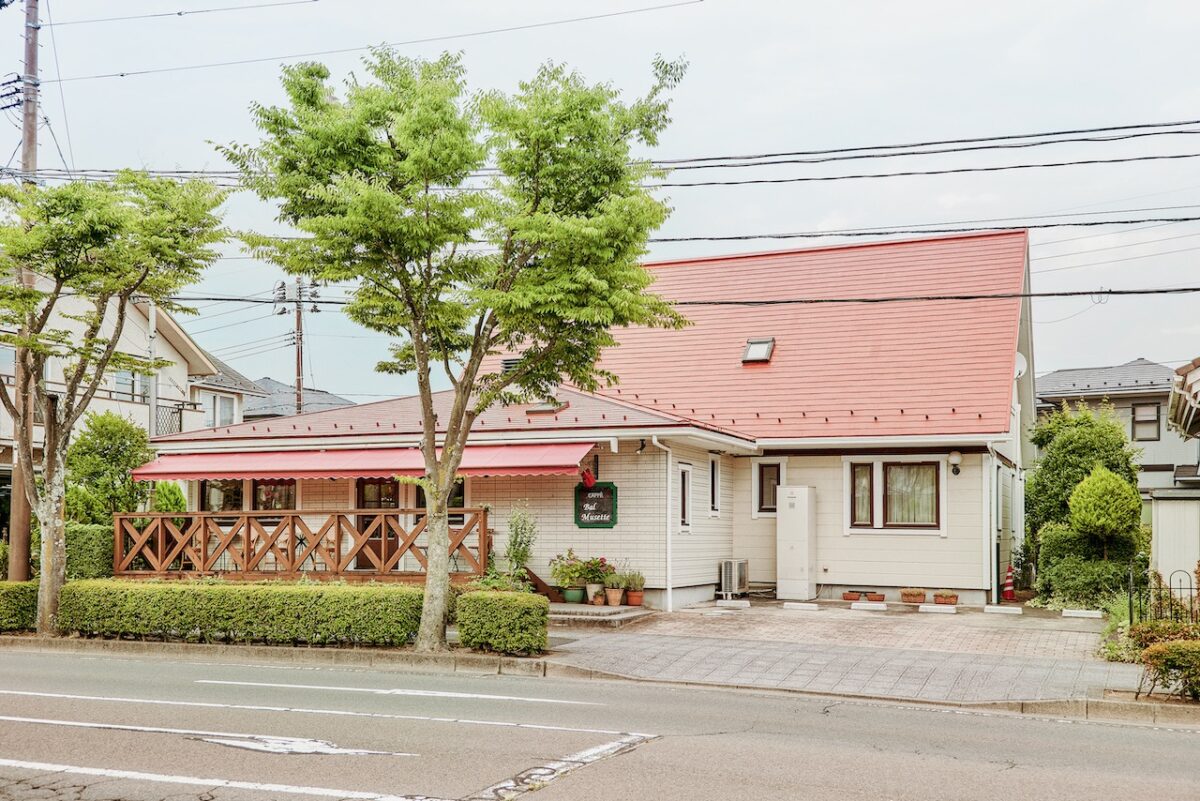
Chiaki Kawaguchi used to be a jazz musician in Tokyo. But when he was 31 years old, he returned to his hometown of Sendai, northeastern Japan. A year later, he started Caffe Bal Musette in 1996. Kawaguchi was deeply influenced by Italy’s bar culture. When he opened his shop, there weren’t many places where customers could enjoy espresso made with beans freshly roasted in-house. A former musician turned coffee professional, Kawaguchi has always been eager to learn, whatever the field of his pursuit. We spoke to Kawaguchi to find out what it is that has kept him going.
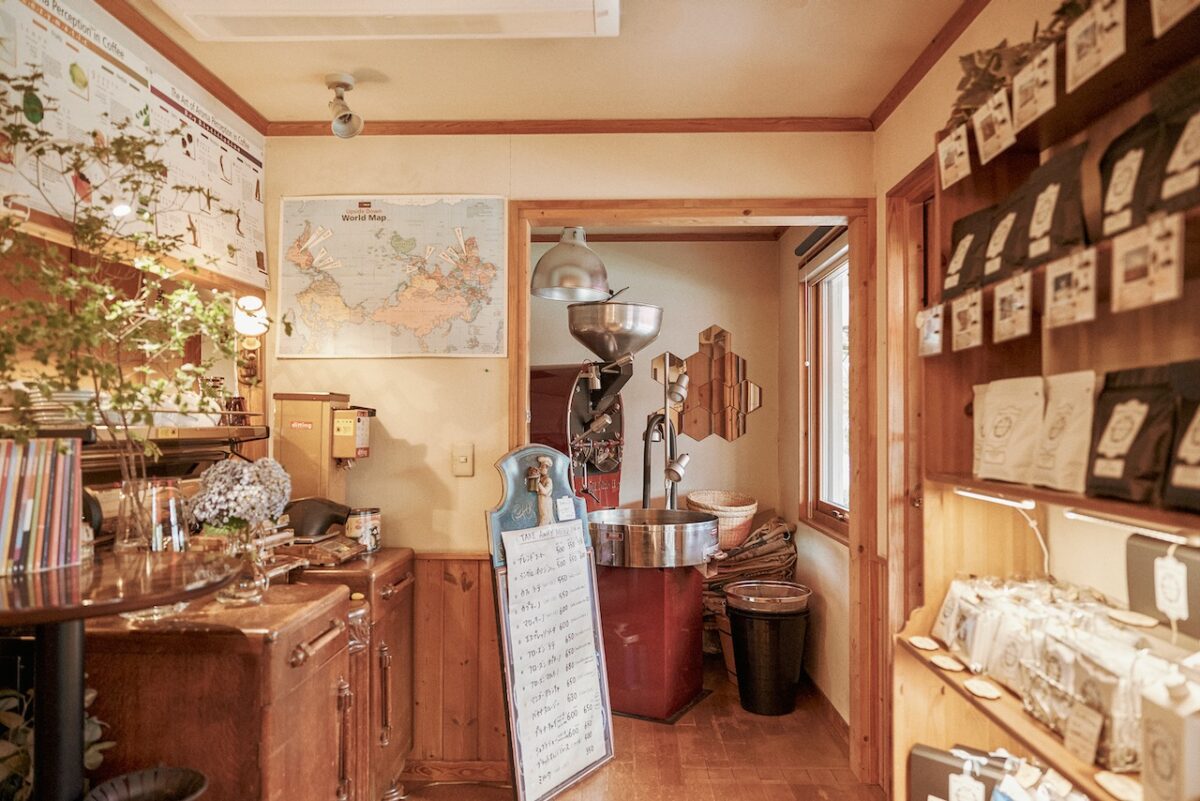
Fascinated by Italian bar culture
Caffe Bal Musette stands on a Zelkova-lined boulevard in Sendai, located along the city’s bus routes. Its presence accentuated by the red of the awning and chairs on the terrace, this building has a certain charm that evokes a streetside shop somewhere in Italy. A step inside the shop, to the right, customers will see a roaster and a counter, where a La Marzocco espresso machine sits. The interior has remained more or less the same for over 25 years. The store has no seats at the counter and there is only table seating. This is to avoid too close a distance between customers and the staff and to allow anyone to come in. Every piece of furniture and fixture was carefully selected by Kawaguchi himself.
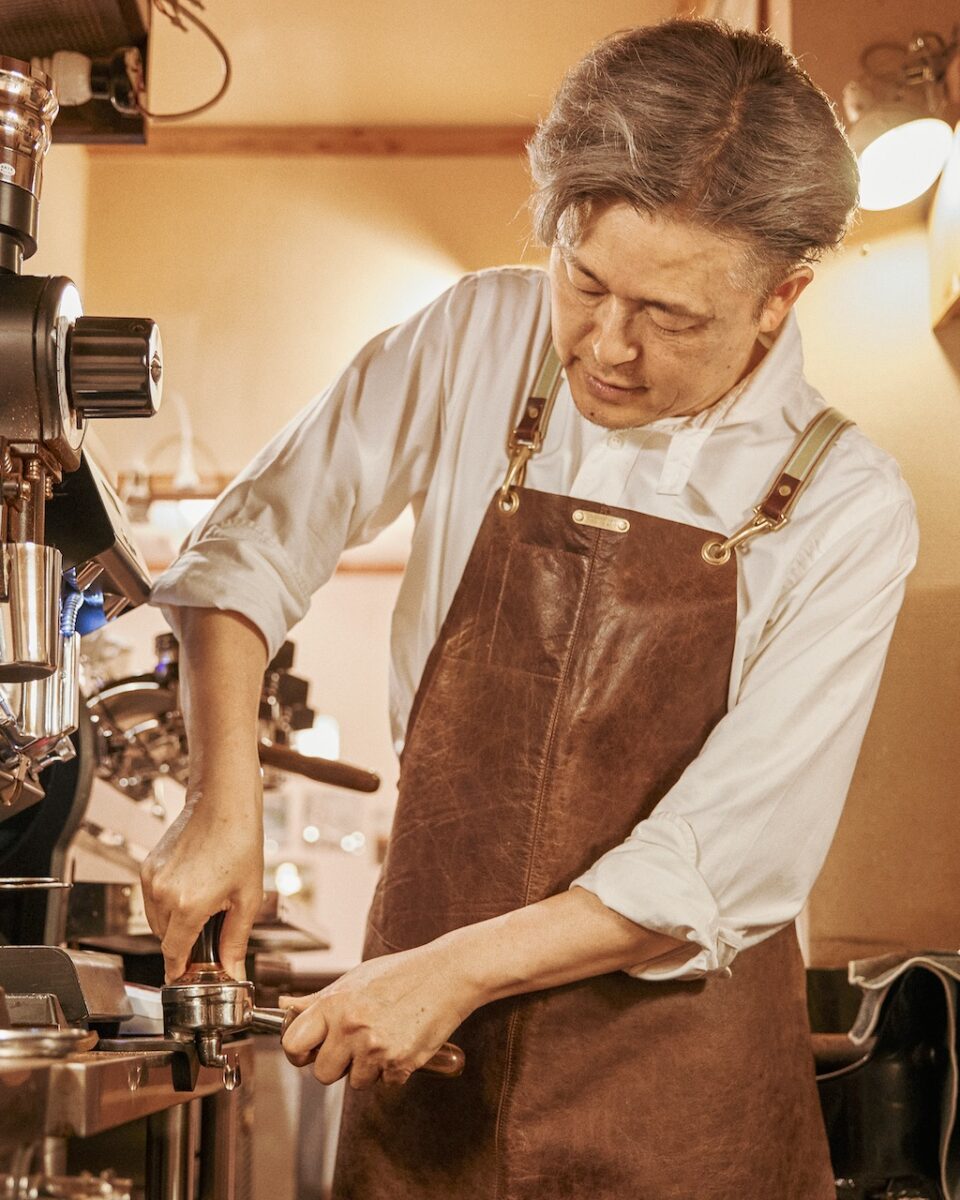
Kawaguchi started working as a studio musician when he was a university student. He continued to play in a band after graduation while studying at a jazz school. He was absorbed in music for a long time. But a trip to Italy in 1994 served as a turning point that eventually prompted him to open a coffee shop in Sendai.
“I had my first taste of Italian bar culture at Tazza d’Oro in Rome, which is still alive and kicking today. Guys were spiritedly talking about soccer at the counter while sipping espresso from tiny cups. It was a really nice space for grown-ups. A barista who looked to be pushing his golden years hustled about, taking detailed requests from customers one by one and serving drinks just as ordered at an incredible speed. That was really cool. Espresso tasted very delicious, too. It was entirely different from the quasi-espresso I had been drinking in Japan.”
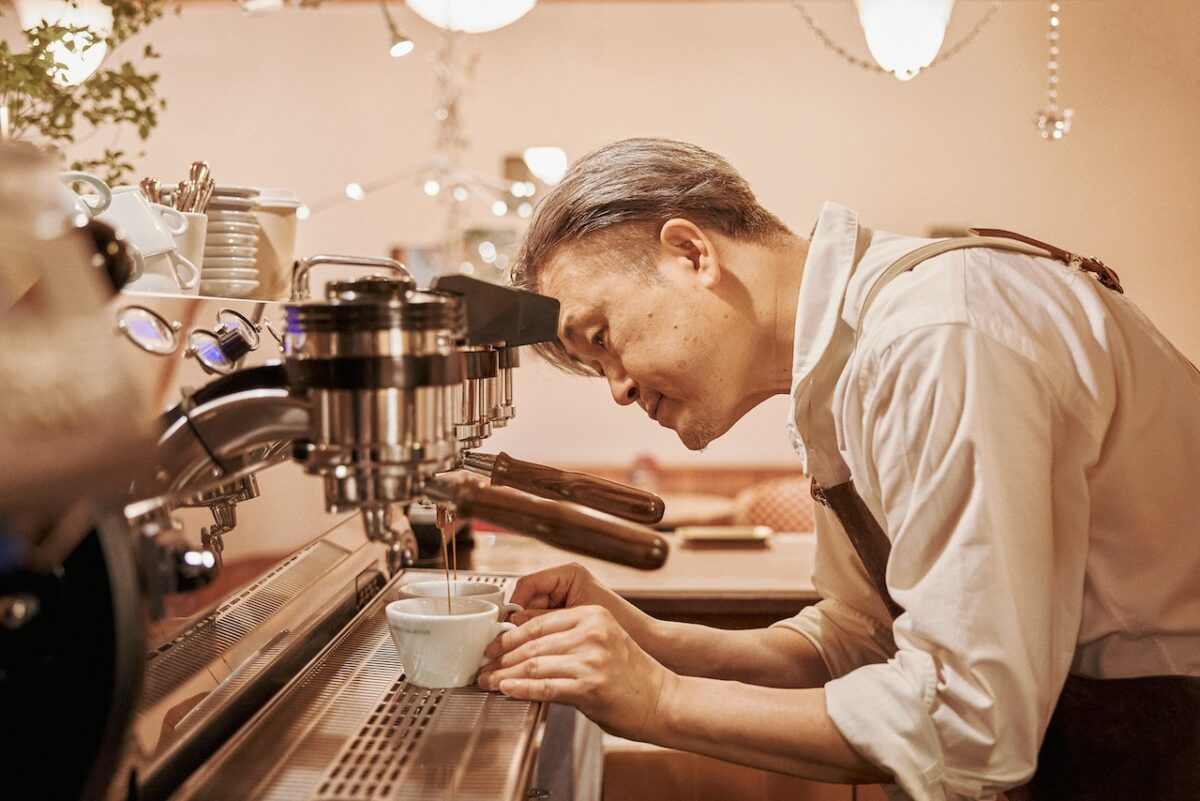
Tazza d’Oro also sells bags of coffee beans roasted in-house, a rarity for an Italian bar.
“Nowadays, there are plenty of coffee shops in Japan that serve coffee that’s roasted on their premises while also selling beans. Some places even use the word ‘roasteria’ in their names. But that wasn’t the case back then. So I thought it would be interesting if there was a place where people could enjoy authentic espresso.”

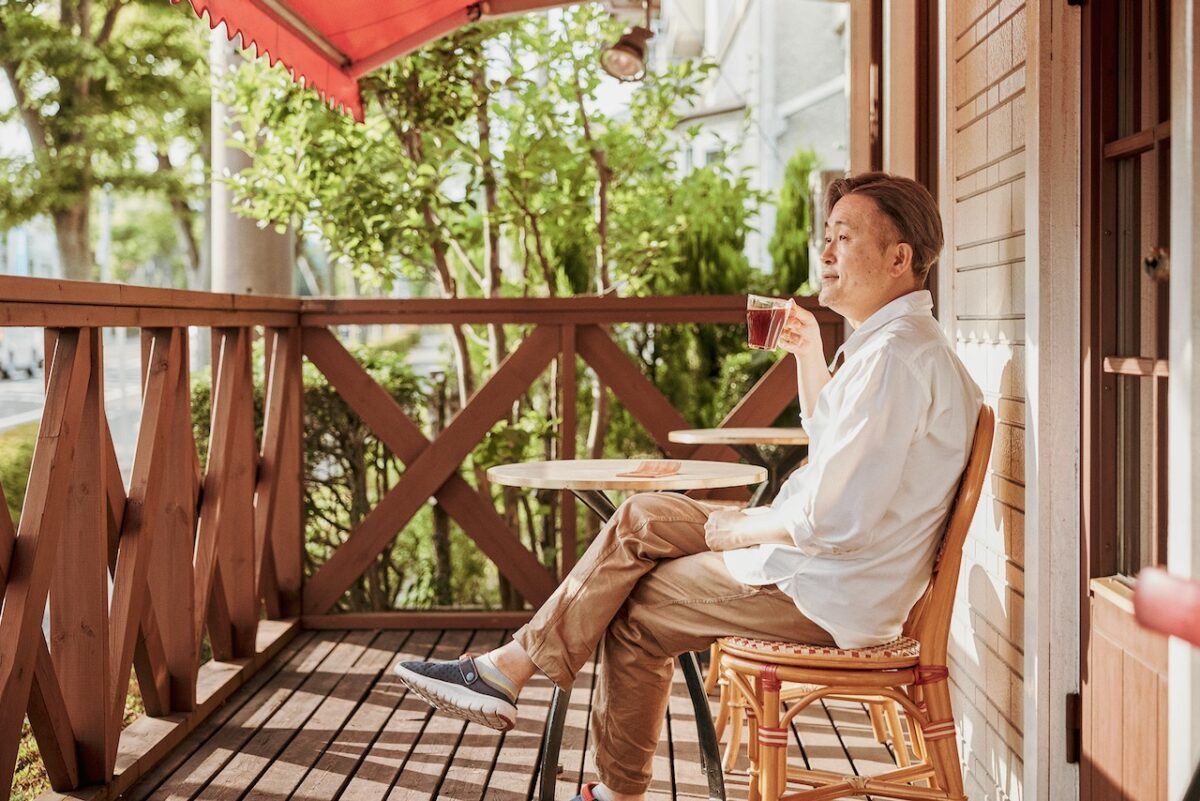
Coffee was always somewhere close by
What was so powerful about Italian bar culture that Kawaguchi was intrigued so much by coffee while on a trip? The answer lies in his childhood when coffee was always close by.
“A cousin ran an antique furniture shop and a small coffee bar in the corner of the shop where he roasted coffee themselves. It was my playground. When I was in elementary school, he almost forcibly made me brew coffee and taught me many things about it.”
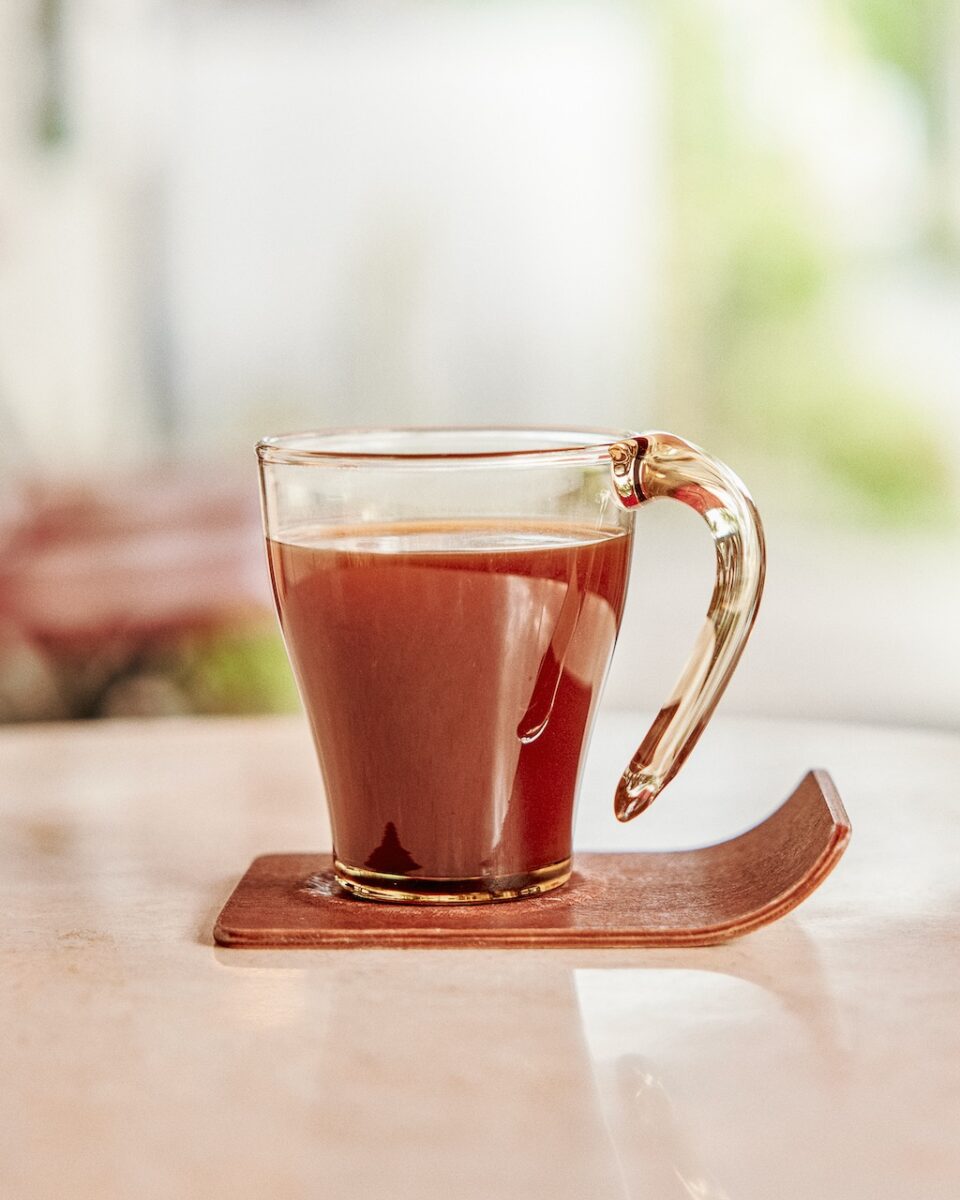
Last year, when Kawaguchi reunited with his cousin for the first time in a long while after his mother passed away, he found out that there was also something else that linked him with coffee.
The cousin told Kawaguchi, “Your mother said that she wanted to drink good coffee surrounded by the antique furniture here. That’s why I started the coffee shop. I wouldn’t have opened it had she not asked me to.” The origin of his coffee journey, in other words, was his own mother.
“When I was told that, I felt that humans are born with destiny they are meant to live.”
As if guided by his fate, Kawaguchi began roasting coffee in the kitchen at home when he was in junior high school, believing that coffee tasted better when brewed with freshly roasted beans. From around that time, he started roasting and brewing his own coffee.
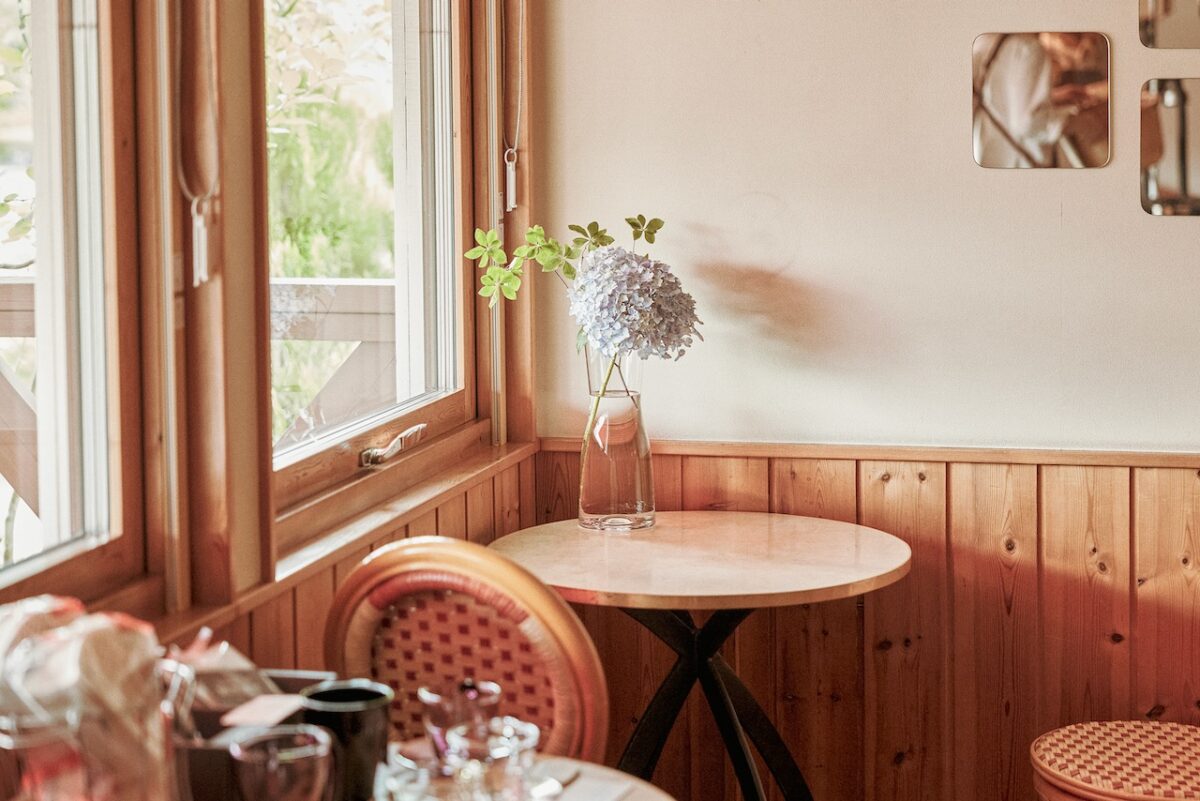
That is why he started dreaming about opening his shop, taking advantage of his years of roasting experience, when he encountered Italian bar culture. He decided to move back to his hometown of Sendai after a nerve gas terror attack on the Tokyo subway in 1995. Kawaguchi happened to be off work that day, but the incident took place on a train line he used regularly.
“Tokyo was blanketed in an intense air of anxiety in the aftermath of the attack. Everyone avoided train cars where there was something on the floor. Some people would start screaming and running in a frenzy just because they saw an empty can fall over. Just when I was thinking that Tokyo was no longer a good place to live, I heard that my parents back home would have to be evicted because of a road expansion project. So I took the plunge and returned home. I decided to rebuild a house that doubled as a coffee shop.”

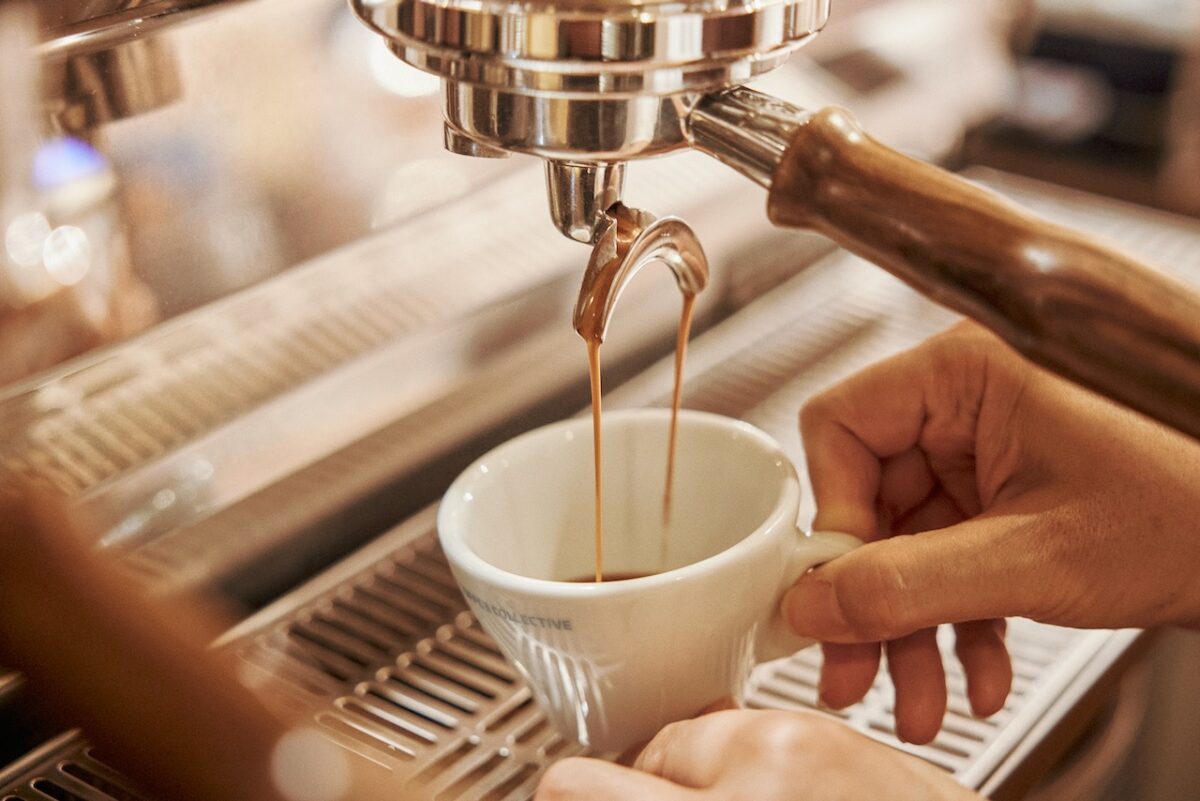
‘I’ll do it if no one else is doing it’
Caffe Bal Musette opened in 1996. Its mission – roasting fresh coffee beans and brewing authentic espresso, a drink hardly famous in Japan, in a newly developed residential area in Sendai – was, in a way, a reckless challenge.
“People in the same line of work strongly advised me against it. That was when Starbucks was just starting to catch on. Everyone told me espresso was just a fad that would soon fade away. But I was confident they were wrong because I’d seen the vibrant bar culture. I knew I could create a taste similar to the one I experienced in Italy if I used freshly roasted beans. I felt that if no one was doing it in Japan, I would. So I figured I would establish my own coffee style slowly at my own shop in a corner of a residential area.”
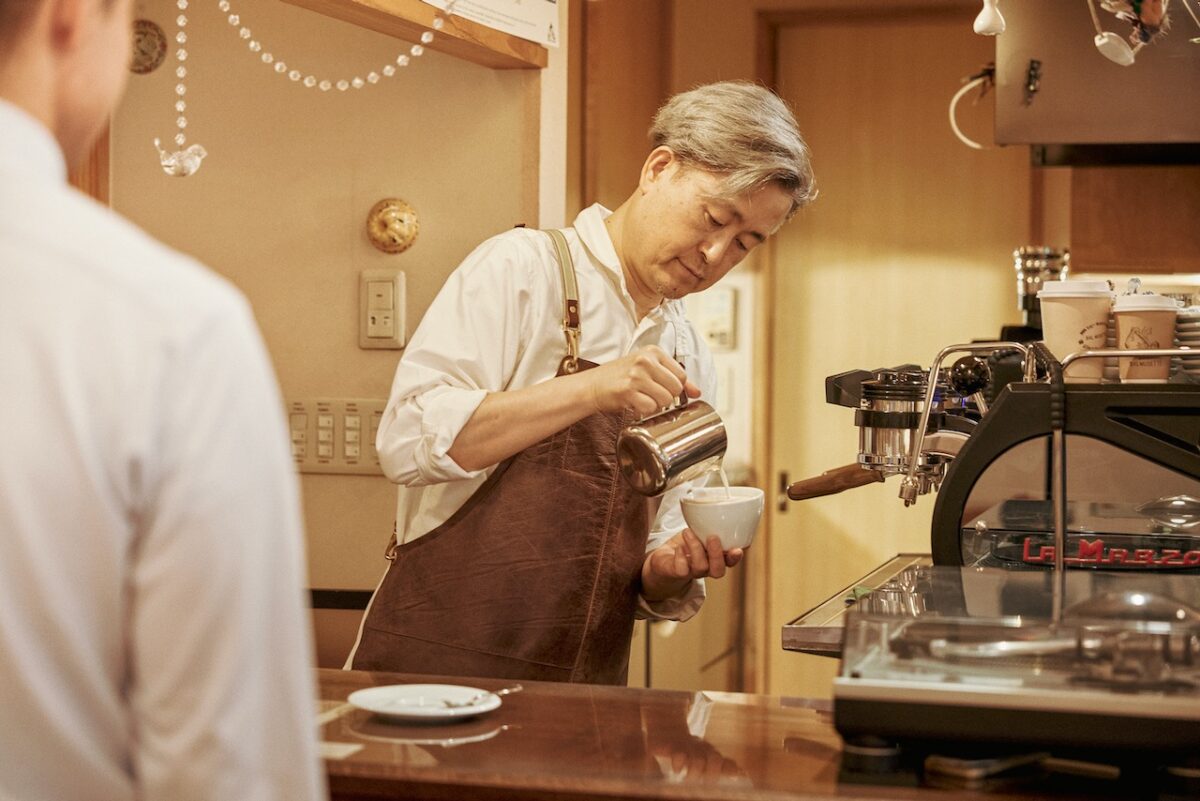
But life has a way of throwing a curveball. The district where Kawaguchi opened his shop was home to a large population of retirees, many of them former trading company workers who lived in Europe for a long time. When they drank Kawaguchi’s espresso, they praised its taste, saying “It’s delicious,” and “It reminds me of Europe.” By word of mouth, Caffe Bal Musette suddenly rose to fame, thanks in part to media appearances. Contrary to Kawaguchi’s initial plans, he had no time to establish his style at his own pace.
Riding on the momentum, Kawaguchi opened a standing coffee shop as his second location in an office district three years later. As an offering of sweets and lunch meals expanded, so did Caffe Bal Musette’s popularity. Kawaguchi’s days became even more hectic.
“24 hours isn’t enough when you run two shops. You have no time to learn new things. Before I realized, we started to be interviewed more for our sweets and lunch menu than for coffee, which made me question, ‘Why am I running these shops in the first place?’”
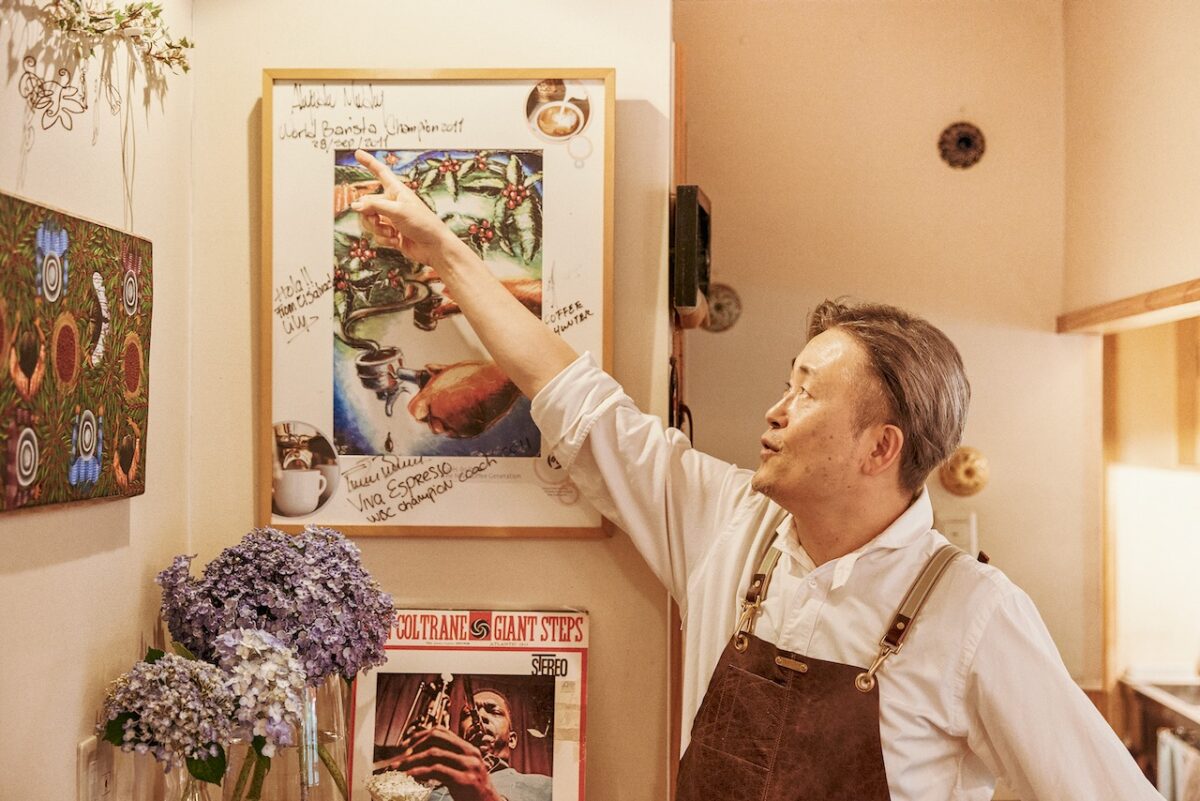
It was during this time when he was invited to take part in the World Barista Championship as a staff member. Though he was too busy running the stores, he decided to go, asking his employees to take over, partly because he had doubts about the state of his shops.

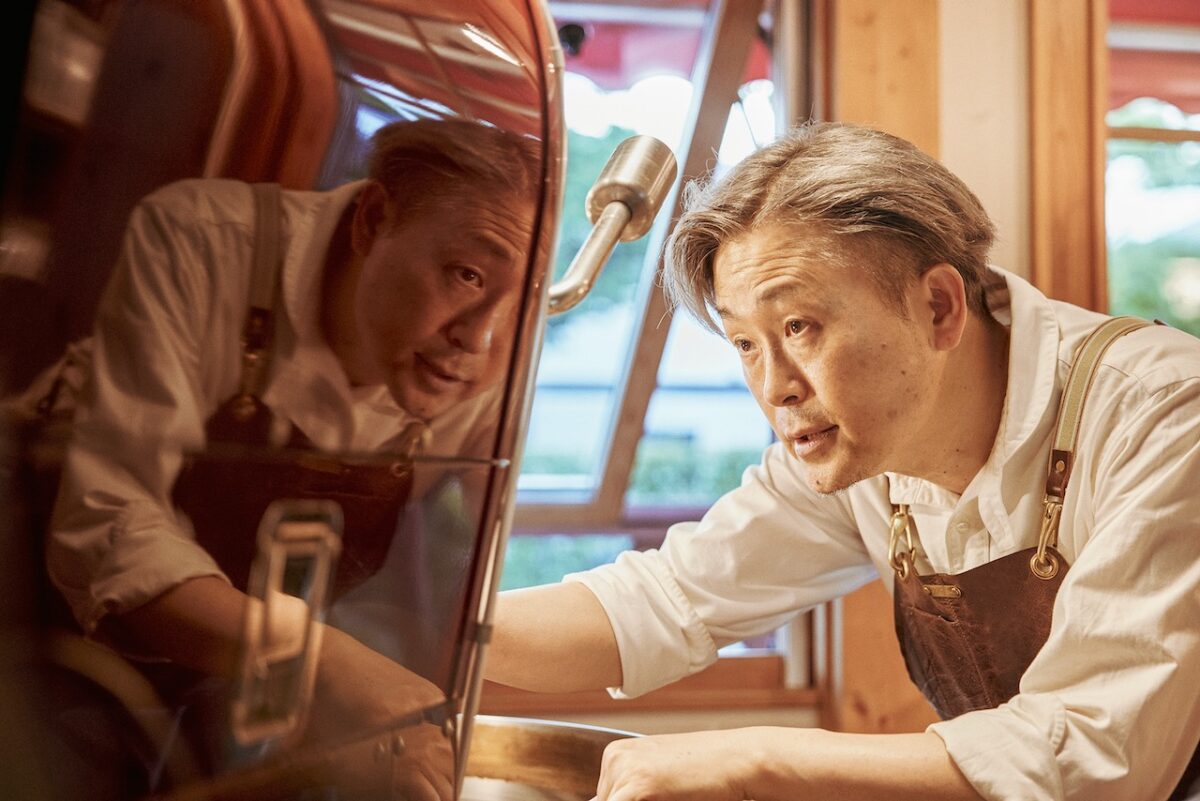
Spending time to learn new things
The 2004 World Barista Championship in the Italian city of Trieste was a watershed moment for Kawaguchi’s coffee life.
“My definition of what an espresso should taste like changed dramatically. The espresso I had there had a strong sweetness that was well-balanced with acidity. There was almost no bitterness. The rules for extraction were also completely different from what I had learned. So I put aside my style of roasting and extraction and started over from scratch. I was also astonished to learn that all the information available in Japan was traditional methods.”
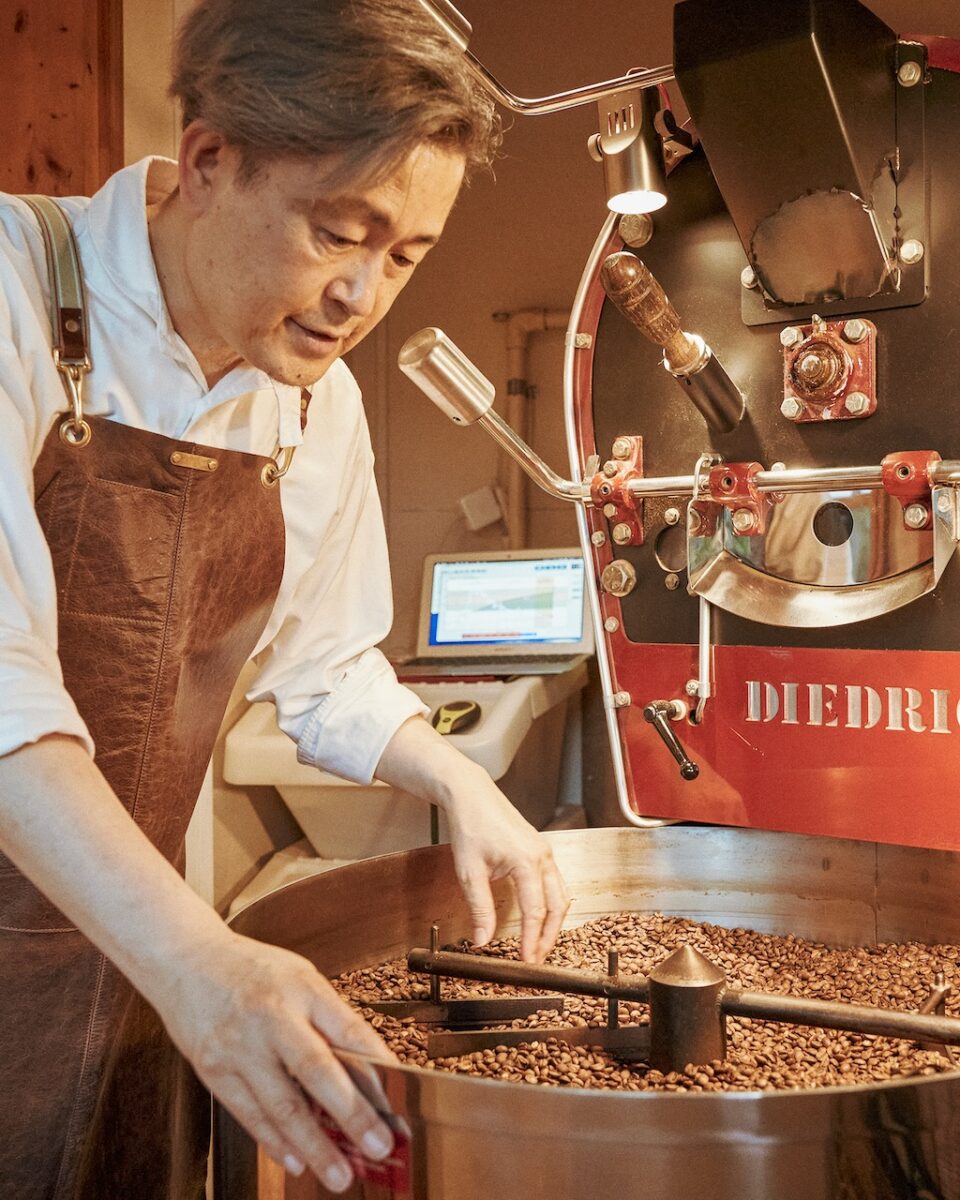
Kawaguchi also felt there was a yawning skill gap between top roasters overseas and himself.
“I witnessed firsthand just how much passion world champions poured into a single cup of coffee. I thought my coffee had already reached a good enough level. But then I found out that there were those far better than me. I realized I was living in such a small world, striving to be the best in Japan’s northeastern region. I decided that I couldn’t afford to waste any more second on making lunches and sweets. Then I closed the second shop in the office district to free up time to study abroad.”
The latest information could only be found overseas, Kawaguchi thought. He traveled to coffee shows worldwide and even visited coffee origins.
“People often ask me if I hope to expand my store. But I can do that even after I grow older. Many coffee origins are located at a high altitude. So I want to visit them while I’m physically fit enough. I believe I will continue to roast coffee until I die. So while my body moves well, I’d rather venture out into the world than make money. I want to spend my time learning new things.”
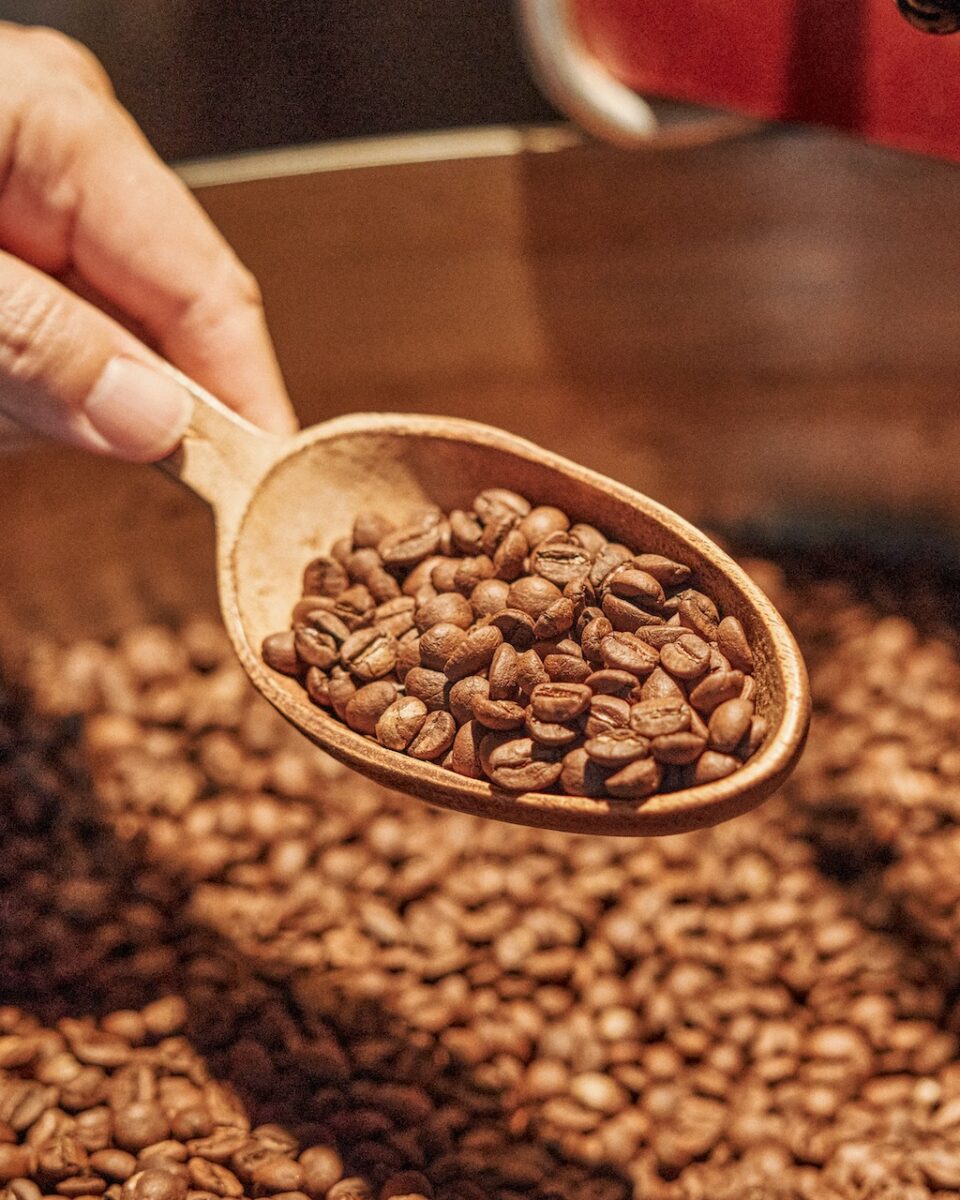
His eagerness to learn is limitless. For instance, when he was appointed a judge for the Japan Barista Championship, he voluntarily went to regional competitions in the United States, filming the contestants and recording what score they earned for what kind of performance. As he made the rounds of competition after competition, diligently filming participants from the preliminary rounds, he gradually made friends with media officials. Interestingly enough, he eventually received a media pass.
Kawaguchi realized that many of the finalists at the WBC were from Northern Europe. From then on, he started to visit the Nordic countries to figure out why the region was home to professionals of such high caliber and high-quality coffee beans. Once, he dropped into a barista academy in Copenhagen, Denmark, without appointment and observed lessons at the school, which produced many world champions.
Kawaguchi started to post his experiences and new information on his blog. After a while, young roasters and baristas from across Japan began to contact him, asking to see all the videos he filmed overseas and hear more about world championships. He didn’t shy from teaching them his skills and sharing his experience. Whenever they needed his advice, he gave them that. He even traveled overseas with them. Years later, Kawaguchi developed a curriculum for barista courses at a technical school in Sendai and taught classes there. Quite a few roasters are former students of Kawaguchi, who has always kept his mind open and taught them various things.
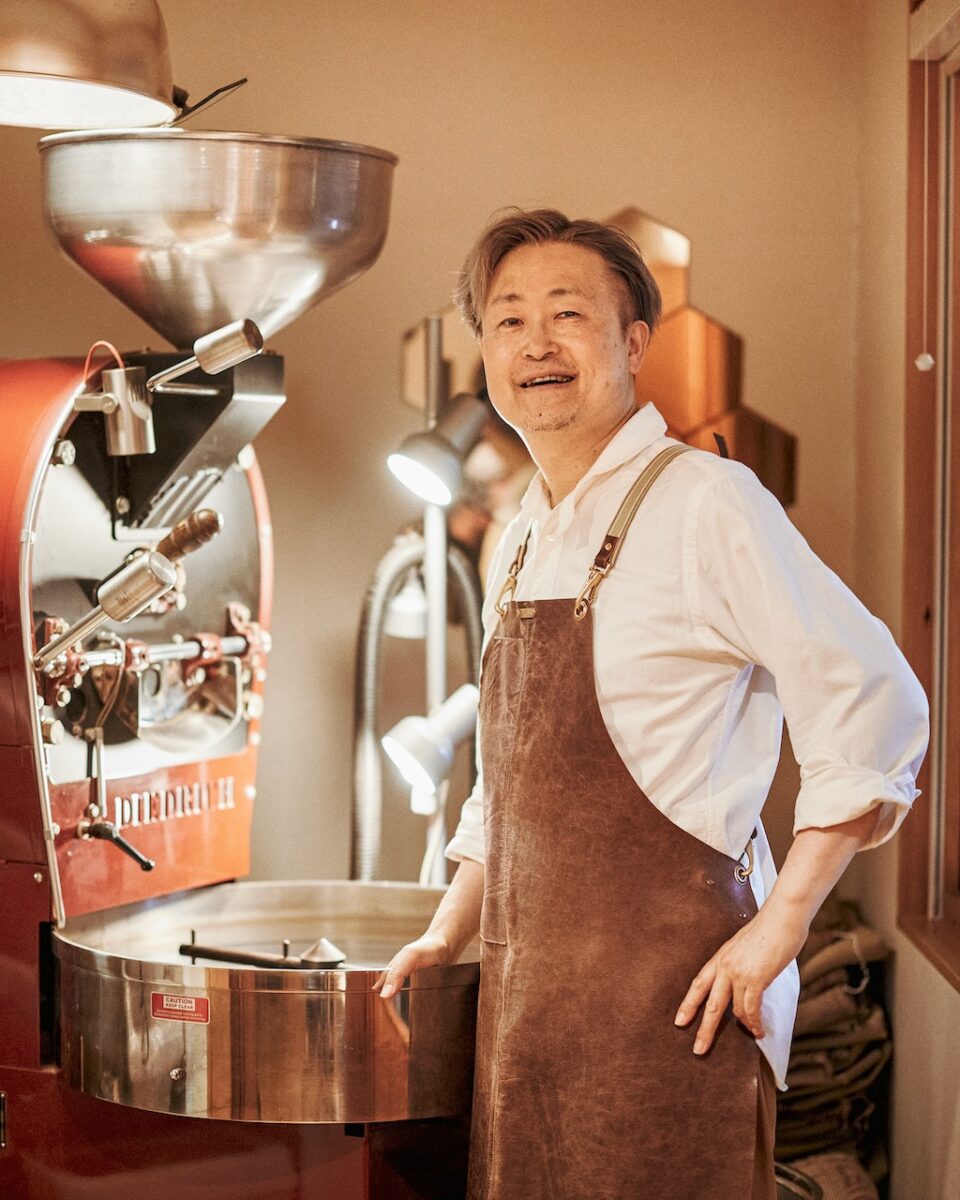
“When I spoke to top contestants at world competitions, they were very open and welcoming. I wouldn’t have blamed them even if they had given me a cold shoulder. But champion-caliber people set their sights high. So they have no hesitation to teach what they know. They don’t try to hide anything. Instead, they would be pretty casual and say, ‘How do you roast? How do you make espresso? Let me try some.’ I thought I wanted to be like them. Besides, I can learn from teaching people.”
Although Kawaguchi has been a forerunner of Japan’s coffee industry, it also seems like he has always worked behind the scenes. But then again, he was a musician. Playing on the stage was his job. Has he ever missed the spotlight?
“I’m more motivated to aim for the next level and meet people I need to meet. Coffee keeps getting updated year after year, which makes it all the more exciting to chase after it. There is no end in sight. So I don’t feel the urge to go into the limelight. Rather, I just want to pursue coffee deeper. I still consider myself an apprentice in training.”
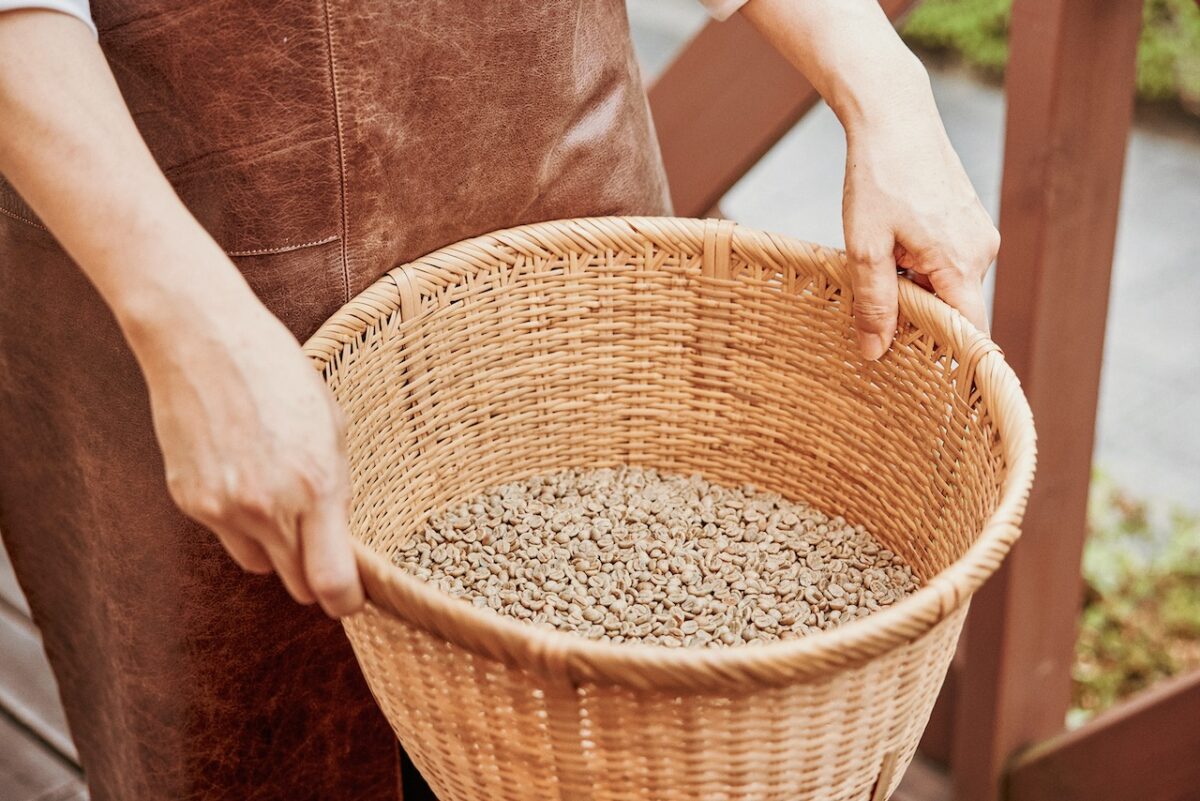
Brimming with vitality though he is, he never imagined he would travel abroad as much as he does.
“My image of a typical coffee shop master was someone who sat still in the back of his shop, reading a newspaper. So when I quit music and returned home to run a shop just as I pleased, I thought that was how my life would go till its end. But after all, I couldn’t do that. The more I learned about the coffee industry, the more I got to know the surprising aspects of it that I hadn’t seen before. And my body started moving before I knew it.”

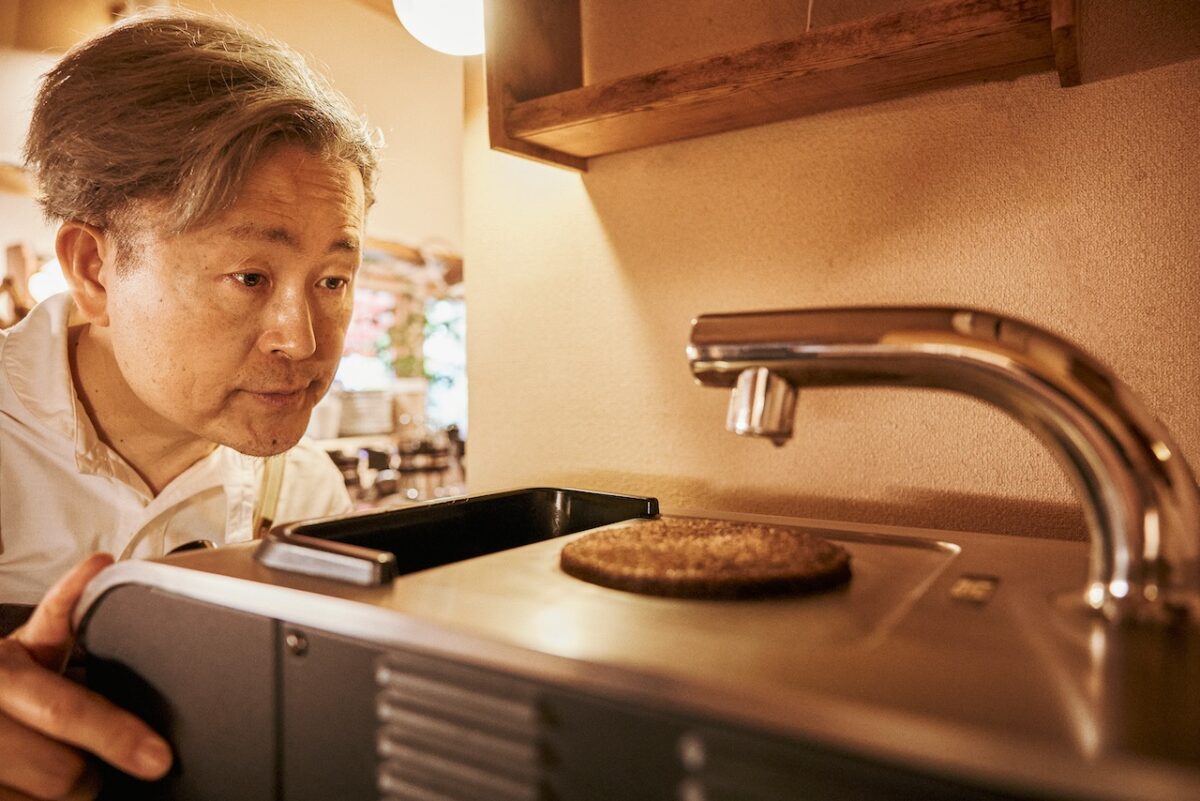
Coffee is inspiring
What is the allure of coffee for Kawaguchi, who says he has never become fed up with it?
“Coffee is something that fits into people’s everyday life . It’s not anything special. We’ve been able to keep our store up and running despite the Covid-19 pandemic because of the people who come to buy our beans, wanting to drink delicious coffee. Coffee has a mysterious pull.”
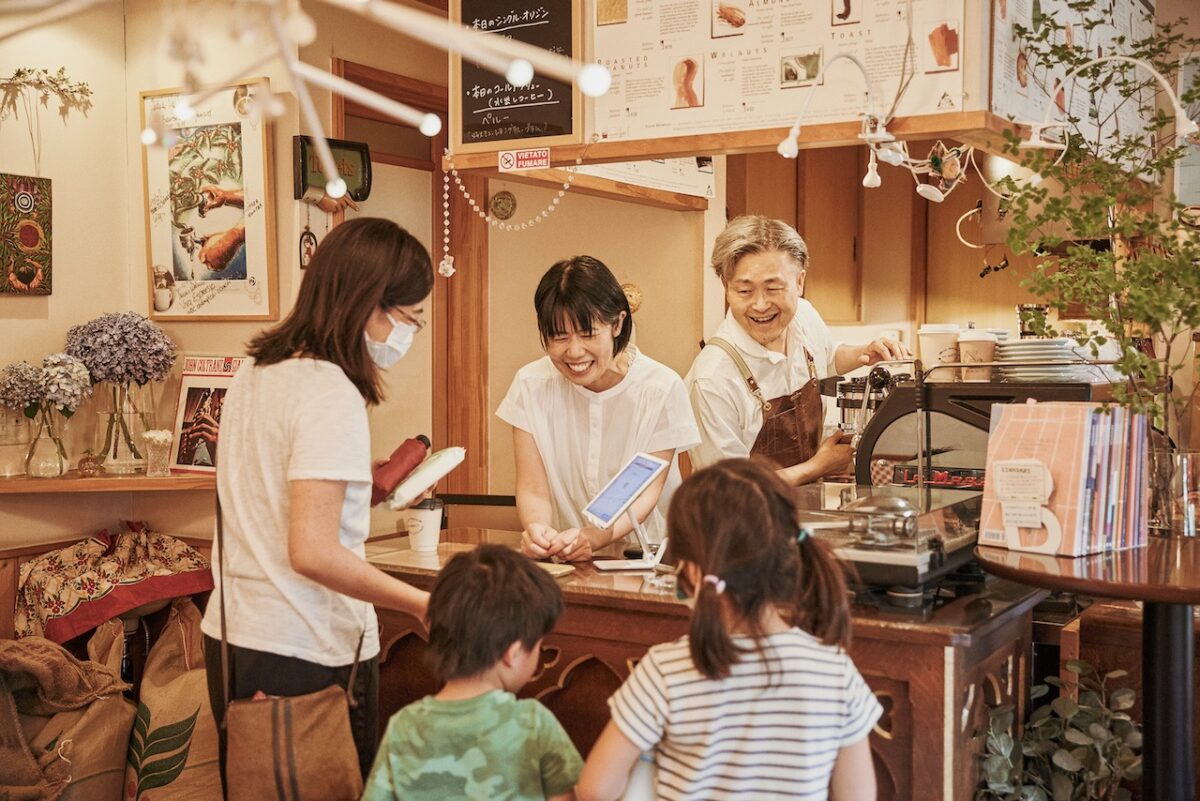
Indeed, many people drink coffee every day. Some people drink coffee to concentrate at work, while others have a cup to relax during a break.
“I think coffee has the power to uplift people. I can’t really put it into words, but I feel that it has wave motion just like music. It may not be visible, but I think we sense it.”
There may be various reasons why coffee may have this wave motion. The profoundness of the ingredient itself. Or maybe the aroma and flavor. Coffee changes hands from the farmer to the transporter to the roaster to the brewer, and finally, to the drinker, their thoughts coalescing into one cup. There is a story before a cup of coffee is prepared.
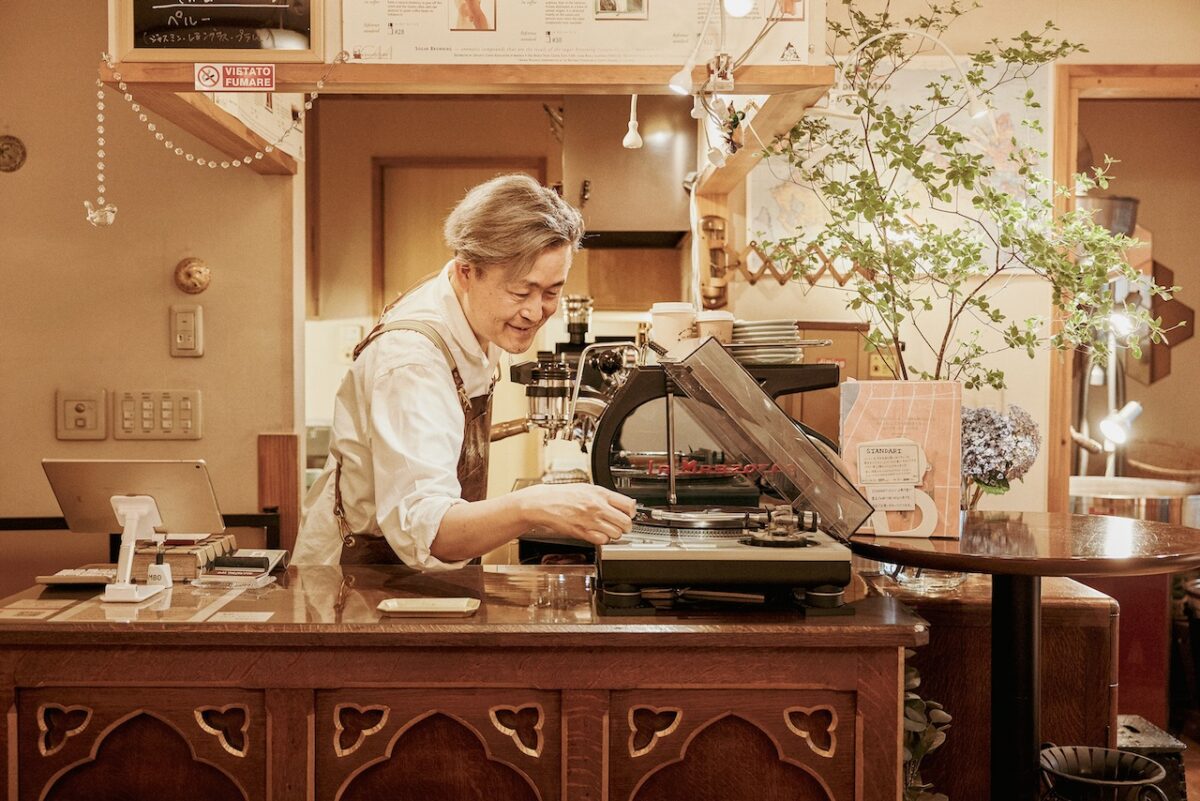
“Coffee gives us inspiration to live tomorrow. It’s a motif itself. Music was the same for me. I was always not satisfied with my performance, and kept thinking that I would be better tomorrow. Now I am a coffee shop owner, but this mindset continues to motivate me. Of course, the beans I roasted today taste good, too. But at the back of my mind, I always feel that I could’ve done a bit better. This is probably why I will continue to roast green coffee tomorrow.”
While always aiming for his best, trying to get better tomorrow than he is today, Kawaguchi moves on the moment he understands the best he can do. He never stays satisfied with his past, or his current self, trying to get a little better than good enough. Kawaguchi will continue on with his never-ending pursuit, believing in his possibilities and coffee’s potential.
Originally written in Japanese by Yuki Hirakawa
Photos by Kenichi Aikawa
MY FAVORITE COFFEE
I go drinking coffee at various places. Every now and then, I finish drinking my coffee before I realize, no matter how big the cup. Although there are quite a few delicious coffees out there, that kind of coffee is rare. And I think it’s what every person needs, and that’s my ideal coffee.
